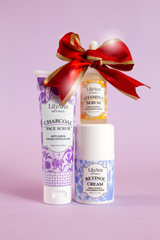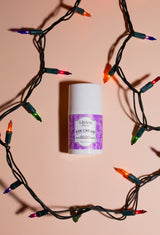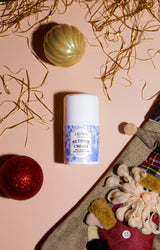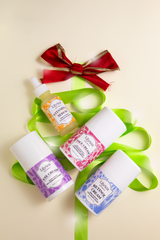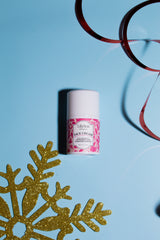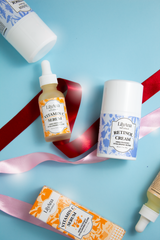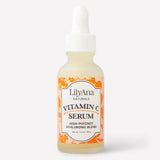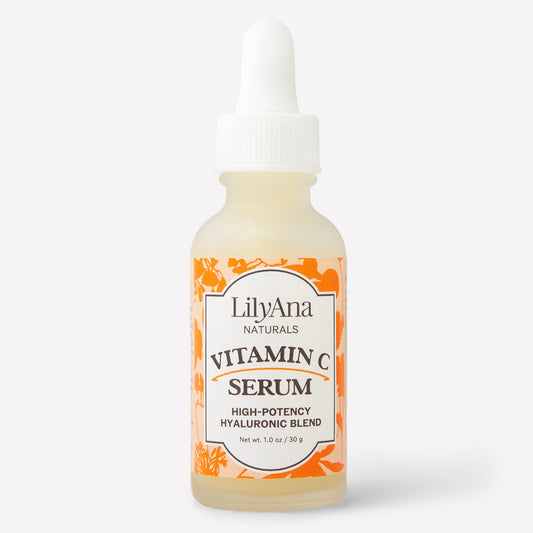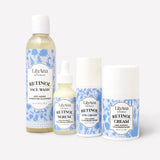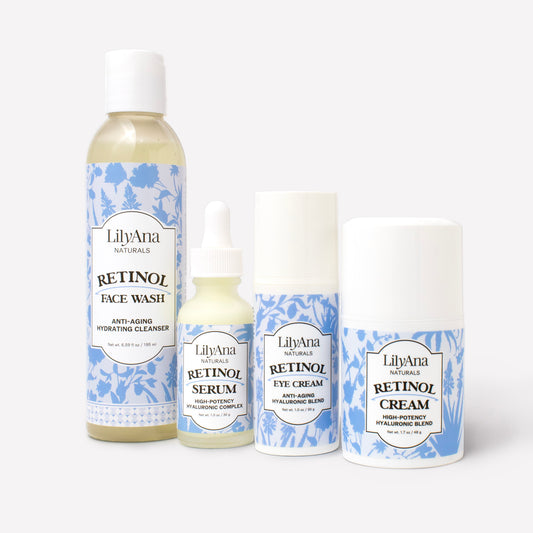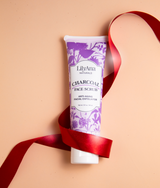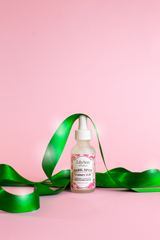We all want healthy, wrinkle-free skin, but it can be so confusing to know which products are the best for doing just that. Everyone and their mother seem to have some special secret that you need to try.
Even dermatologists have opposing views on which treatments and skincare ingredients are the most effective remedies for common skin concerns. How is a woman to know what type of products to prioritize?
One of the debatable but ever-so-relevant skin solutions in endless products on the market today is retinoids. Or is it retinol? Wait, no… Retin-A. Are these three things even related? It’s so hard to know the difference anymore; everyone throws words around like we’re supposed to know what they mean!
Let’s Clear Up the Confusion
The main thing to know about these big three is that they all exist under the same umbrella. Scientifically, retinoids, retinol, and retin-A all function toward the same goals and are all derived from vitamin A.
Every one of them is famous for their anti-aging, acne treatment, and skin cell turnover capabilities (we’ll talk more about each of these later). Before we go over what the differences between the three are, let’s explore what they have in common.

They’re All Derived from Vitamin A
All three of these are made from vitamin A, which is one of the essential vitamins required to rebuild and reproduce cells in the body. While we all know it’s good for keeping our vision healthy and clear, it’s also useful at maintaining immune function, cell division, blood stimulation, and more.
They All Help Collagen Production
Each of the three forms boosts the production of collagen in the skin. Collagen is what helps keep the skin plump, smooth, and elastic. More collagen equals more youthful skin for a longer time.
They Help Skin Cells Regenerate
Retinoids, retinol, and Retin-A all work at speeding up the skin cell turnover process. This means it rapidly sheds away dead skin cells to make room for new cell production.
Regenerating the skin cells through this process results in smoother, more even skin. With this plus the increase in collagen production, anti-aging benefits are the main result people tend to see.
All Are Used to Help Treat Skin Conditions
Whether it’s signs of aging, chronic acne, sunspots, skin diseases, or even certain skin cancers, all three of these compounds help treat the skin. The most common condition retinoids are utilized in treatment for is wrinkles and acne.
So What Are The Differences?
Let’s break it down, now. Retinoid is the larger term that includes all things retinoid. Think of retinoids as the last name of a family. There are several people in the family, but they can all be identified by the name Retinoid.
Retinol and Retin-A are like first-name individuals within that family. Retinol is one individual, and Retin-A is a different individual. They share similar DNA and characteristics, but they are unique in their own right and serve different purposes. But remember, both retinol and Retin-A are still both retinoids.
Retinol vs Retinoid
Retinol and retinoid are more similar than they are different. Retinoids are the active ingredients contained in various types of treatments and products that help with skin cell turnover. They are usually referred to when discussing more intense treatments that are offered only through a prescription of a dermatology professional.
Retinol, on the other hand, is an ingredient that can be bought over the counter in the form of creams, gels, and lotions. Generally speaking, many consumer retinol products are popular, well-loved, and less concentrated than straight retinoid products. Because they are less concentrated, they won’t be as potent or effective as retinoids.
But there is a catch. Since retinoids are highly concentrated (meaning they are more potent), they irritate the skin. This is why retinol is so much more popular today for the everyday beauty industry geek. Retinols are easier to access, easier to use, more affordable than expensive retinoid treatments, and less likely to result in crazy skin reactions.
Retinol vs Retin-A
Now we know retinol is the common ingredient in many beauty creams, face products, and anti-aging brands that we see in cosmetic shops and drugstores everywhere. What does Retin-A have to do with the retinoid family? Retin-A will be easy to remember because the difference between the two is obvious.
Retin-a is the most widely-known brand name for the first-ever retinoid, called Tretinoin. Also known as retinoic acid, it was developed from vitamin A in the 1970s and was offered as a treatment for acne.
Retin-A is still used today as a treatment for acne as well as skin pigmentation issues and other skin disorders. It’s available through prescription only, so you can’t find it in pharmacies or beauty parlors like you can many topical retinol products.
Are They All the Same Thing?
So are retinol, retinoids, and Retin-A all the same things? Yes and no. They all serve the same underlying purpose. They fulfill similar jobs for the same skin issues, but they do so in varying amounts and intensities.
To recap, retinoids are a group of compounds that come from vitamin A. They minimize wrinkles, acne, and even out skin tone. They’re a class that includes both prescription-strength retinoids (topical or medication) and milder, over-the-counter products (topical).
Retinol is a type of retinoid that is found in many beauty products you can buy at the store in the form of creams and gels. Its side effects are less intense than prescribed retinoid treatments, which is why you can buy them at convenience stores. Even though it contains retinoids, retinol works gradually over time because it’s not as concentrated.
Retin-A (AKA retinoic acid or Tretinoin) is the original retinoid medicine. It’s quite powerful and to this day it’s only offered as a prescription, mainly for acne treatments or serious facial skin concerns.
Topical Retinoids vs Medication Retinoids
Most of the time, retinoids are topical products. This is especially true for retinol. Many retinol skin ointments, creams, and retinol serums are not on par with prescription retinoids. There’s an exception, though: one over-the-counter retinol called Differin, which is a gel that is stronger and more akin to the strength of retinoids. But some retinoids can be taken orally to work from the inside out.
Oral retinoid medications are given to people to treat severe acne, usually. But they can also be prescribed to help treat rosacea, psoriasis, scalp folliculitis, and other disorders. The most popular type of retinoid medication people have heard about is a medication called Accutane.
It’s easy to see now that all three retinoid categories are useful in helping people get clearer, healthier skin. But how exactly do they give results? The main scientific process of retinoids is the way it causes the skin cells to turn over, die off, and create new cells.
Retinoids work deep under the epidermis of the skin in the layer called the dermis. It’s all happening under the layer of skin you can see and feel. When you wash your face, you’re clearing away dirt and debris from the top layer (the epidermis). But when you use retinoids, the chemical compounds go under the surface layer to naturally exfoliate deep within the pores.
Think of it as a sped-up process of the already normal cycle of skin regeneration happening on your body. Even without any beauty products, new skin cells are being created, soon die off, fall off the body, and then recreate new skin cells to take their place.
This is happening all the time and we don’t even notice it. With retinoids, you’ll notice it because it will be happening at a much faster rate.
Retinol vs Retinoid vs Retin-A: Which One Do I Need?
This question is not easy to answer because every face is unique, and so are all individuals’ skin needs. There is no “one size fits all” solution to aging, acne, dark spots, or breakouts. Everyone has their own preferences when it comes to skincare, so you probably won’t be able to be told any magical solution within this article.
What you can do is think about the skin challenges that are specific to your skin and then do a little bit of critical thinking about the pros and cons of each solution below. Hopefully, this will help you get on the right track toward whichever retinoid product might be able to help you out.
Pros and Cons of Retinoids, Retinol, and Retin-A
Retinol Pros:- Widely available in stores for OTC (over the counter) purchase
- Offers gentler effects than prescription retinoid treatments available
- Large selection of products giving you options for the skin type, ingredients, and brand preference
- Topical use for the face, neck, and other parts of the body (as directed)
- Reduces wrinkles and fine lines in the face
- Improves collagen production over time
- Helpful for managing oily skin
- Safe and effective for most skin types
- Less risk than medication or more concentrated products
- Hydrating
- Takes longer to see results because of its less concentrated formula
- Still known to cause uncomfortable side effects
- Can be tricky to find the right product if you don’t know what to look for
- Irritation can occur such as redness, itching, skin peeling, and burning
- Takes a while to get used to, as the skin has to adapt to retinoid compounds
- Used for treatment of various skin issues
- Powerful effects can be seen immediately
- Many classes of products to choose from (topical, medication, etc.)
- Vitamin A derivatives help new skin cells produce
- Decrease uneven skin tone
- Smooth the skin
- Antioxidant properties
- Deliver more collagen production to the skin
- Trusted by dermatologists and beauty experts throughout the world
- Clears hyperpigmentation
- Sensitivities often occur with initial use
- Increases risk of sun damage
- Must be properly prescribed by a professional
- Intense reactions on almost all skin types, especially sensitive skin
- Noted physical side effects with long-term use
- Skin peeling, burning, redness, and breakouts
- Skin usually gets worse before it gets better
- Helps many people with severe skin conditions who have tried everything else
- Trusted over decades for its effectiveness
- Scientifically proven to be effective for clearing skin
- Medical-grade skin care product
- Rapidly cleans out dead skin cells
- Clears the pores
- Almost immediate results
- A highly concentrated dose can cause painful side effects
- Only available through prescriptions
- Dryness
- Peeling and flaking
- Breakouts can get worse before they improve at first
What Are the Side Effects?
Retinoids can give anyone the benefits they are looking for to improve their skin. But that doesn’t mean these substances don’t come with a list of potential side effects.
Any time you introduce a new ingredient into the body there is a risk of reaction, no matter how big or small. The most common side effects of all retinoids, including retinol and Retin-A, include:
- Burning of the skin
- Peeling or flaking
- Inflammation, swelling, irritation
- Changes in skin pigmentation or skin texture
- Adjustment phase when first trying retinoids
- Unusual dryness
- Unsightly side effects referred to as “Retinol Uglies”
- Requires patience to see desired results
How to Care for Your Skin When Using Retinoids
Whether you opt for professional retinoid treatment, a prescription Retin-A, or more practical retinol products from your beauty store, use the following methods to combat some of the more intense side effects.
1. Always Follow the Guidelines
Most retinoids are strong concentrations of vitamin-A intended to treat skin conditions. You shouldn’t take it lightly or willy-nill the protocols. Follow the instructions and talk to your dermatologist about any concerns or questions that come up.
You want to use these things correctly, not just throw spaghetti at a wall. The better you use retinoids correctly, the less likely you’ll has adverse reactions.
2. Take It Slow
If you’re using retinol on your own and not under the advice of a skin expert, be sure to take it slow. The skin needs time to adjust to the changes the retinol will cause among your cells and skin layers.
Try using it once a week at first, then work your way up to every other day. Sometimes it might not be necessary for you to use retinol every single day, but some people have done it, depending on what type of product they use.
3. Remember to Moisturize
Retinoids can cause skin dryness and discomfort. Make sure you are moisturizing daily with a moisturizer that has clean ingredients and will soothe your skin. If you’re prone to dry skin, maybe even moisturize twice a day after you wash your face: once in the morning and again before bed.
4. Always Wear Sunscreen
Retinoids cause sun sensitivity! Beware of going out in the sun if you’re wearing any retinol for the day. Always wear a strong SPF sunscreen on top of any retinoid products. You don’t want to damage your skin while trying to fix skin issues, as that will just make the problem worse!
5. Avoid Products with Harsh Ingredients
When using retinoids, cut back on using skincare products that contain harsh chemicals or ingredients. The simpler, the better. Less is more when you’re dealing with any skin irritation. If you are fighting the retinol uglies, it’s not the time to be using exfoliator scrubs or face peels!

Where to Start?
It’s often helpful to start using retinoids, retinol, or Retin-A if you’re following the advice of a dermatologist or seeking to prevent signs of aging before they appear. Be smart about what you put on your skin. If you don’t know where to start, we recommend starting with safe, natural products that won’t strip your skin right away.
Luckily for you, there are all kinds of options where you can try out retinoids without hurting your face. A retinol face wash is a safer option as it won’t be soaking into your face all day long but still gives you a thorough cleanse deep in your pores.
Retinol cream can also be a heavenly addition to your skincare routine when you trust the rest of the stuff in the product. A major part of seeing success with retinoids is finding the best retinol product for you.
